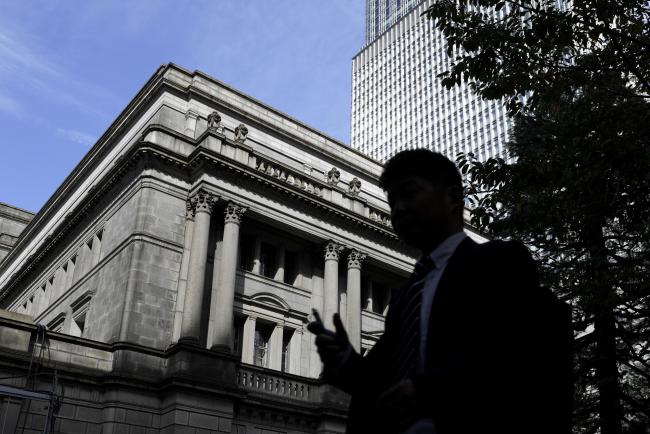(Bloomberg) -- The Bank of Japan left its stimulus settings unchanged at its final policy meeting of the year, as risks to inflation mount and just hours after the Federal Reserve signaled a slightly more dovish rate path ahead.
The BOJ left its yield curve control program and asset purchases unchanged, the central bank said in a statement Thursday, a result predicted by all 49 economists surveyed by Bloomberg.
Governor Haruhiko Kuroda faces a deteriorating environment with inflation only halfway to the BOJ’s 2 percent goal. With oil prices tumbling, economists see it falling toward zero in the year ahead. Slowing growth in China, the U.S.-China trade war and a disruptive Brexit could all hit Japan’s export-dependent economy, which has contracted in two of the past three quarters.
"The BOJ has no option but to stick with the current stimulus," Norio Miyagawa, senior economist at Mizuho Securities Co., said ahead of the decision. "They must be aware of increasing downside risks."
Kuroda has a news conference scheduled for 3:30 p.m. in Tokyo. While he may note rising global risks, he’ll need to strike a balance. Ringing an alarm could prompt calls among some policy makers for additional stimulus, and the BOJ is thought to have few options left.
The risks are reflected in financial markets. Japan’s Topix stock index hit an 18 month-low on Wednesday, while benchmark 10-year bond yields this week fell to 0.01 percent, the lowest since September 2017.
While some BOJ officials are said to be fine with yields hitting zero percent or below, sub-zero yields for an extended period would again elevate concerns about profits at Japanese banks. Eroded bank profitability was a key reason the BOJ introduced yield curve control in 2016.
The Fed’s more cautious stance on future rate increases will complicate matters for the BOJ, which must be mindful that any clear signal of policy normalization, particularly if the Fed seems poised to hit pause, could cause the yen to quickly gain unwanted strength.
Compared with October, fewer economists now expect tightening of policy next year, the Bloomberg survey found.
